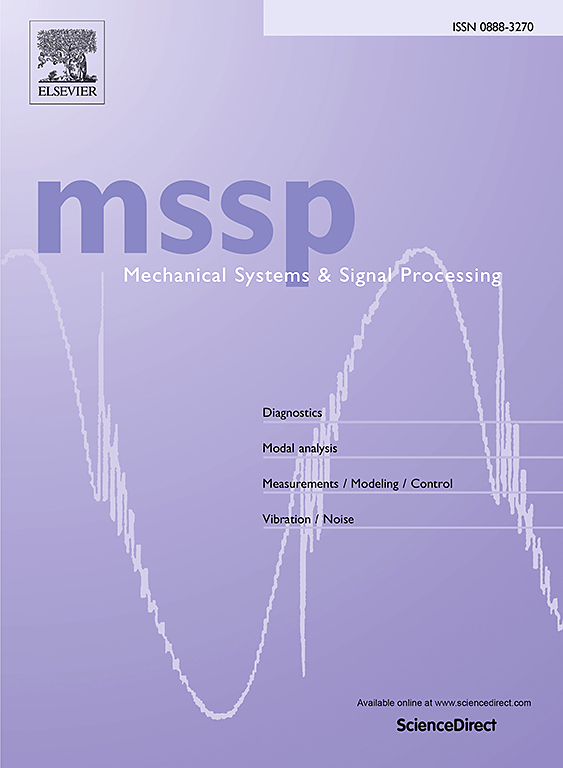Dynamic model-assisted disentanglement framework for rolling bearing fault diagnosis under time-varying speed conditions
IF 7.9
1区 工程技术
Q1 ENGINEERING, MECHANICAL
引用次数: 0
Abstract
Rolling bearings of rotating machines are frequently required to operate under time-varying speed conditions. Although numerous deep learning methods have been advanced for fault diagnosis of rolling bearings, most are anchored on the assumption of constant speed or a few speed conditions. Extracting underlying fault-related information without interference caused by continuous speed changes is still problematic. To this end, a dynamic model-assisted disentanglement (DMAD) framework is proposed, enhancing the adaptability to time-varying speed conditions by a representation disentanglement technique with dynamic model simulations assisted in network training. Firstly, a four-degree-of-freedom dynamic model of rolling bearings considering speed variations is established to provide augmented training data with diverse health and speed conditions. Furthermore, a directed representation disentanglement network based on adversarial learning is developed to separate deep representations of health conditions and rotational speeds. Due to the divergences between simulated and real data, a contrastive model calibration method is also proposed to calibrate the network trained with simulated data, thus facilitating the generalization performance of fault diagnosis. Experiments conducted on two experimental datasets and a factory case demonstrate the superiority of the proposed DMAD framework, which provides reliable rolling bearing fault diagnosis under time-varying speed conditions.
求助全文
约1分钟内获得全文
求助全文
来源期刊

Mechanical Systems and Signal Processing
工程技术-工程:机械
CiteScore
14.80
自引率
13.10%
发文量
1183
审稿时长
5.4 months
期刊介绍:
Journal Name: Mechanical Systems and Signal Processing (MSSP)
Interdisciplinary Focus:
Mechanical, Aerospace, and Civil Engineering
Purpose:Reporting scientific advancements of the highest quality
Arising from new techniques in sensing, instrumentation, signal processing, modelling, and control of dynamic systems
 求助内容:
求助内容: 应助结果提醒方式:
应助结果提醒方式:


